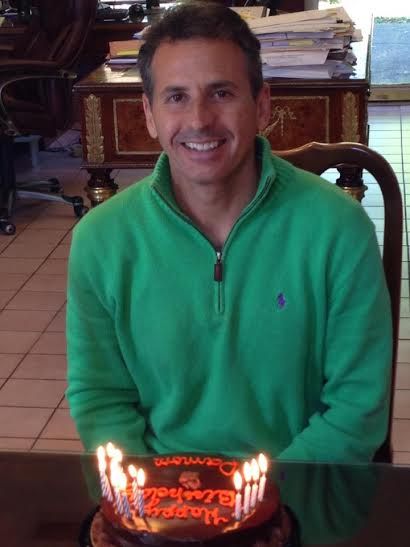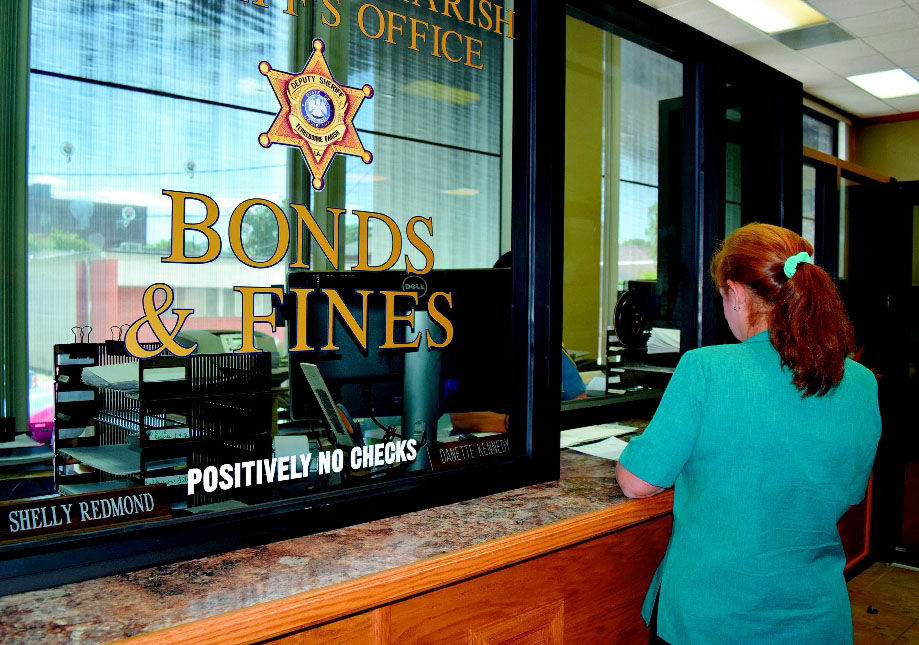
Houma politico on Ashley Madison list
August 22, 2015
Hue-Ann Hebert
August 22, 2015The U.S. Supreme Court has ruled over decades that courts must not jail people simply because they lack financial ability to pay fines, clearly stating that judges must hold hearings to determine their financial status.
But a report issued last month by the American Civil Liberties Union of Louisiana alleges that jailing people too poor to pay is common in some Louisiana courts. The result, the ACLU study says, is a two-tiered system of justice, one for those who have access to cash, and another for those who do not.
The Times embarked on its own investigation of local practices after a review of the ACLU report. Local judges and other criminal justice system officials say they attempt to work with individuals by giving them added time to pay fines and court costs, or imposing community service for those unable to pay. Courtroom observations, interviews and checks of records confirm those claims.
Despite that, strong evidence was found of arbitrary standards and uneven practices in local jurisdictions, with policies that vary from parish to parish and even courtroom to courtroom, a problem highlighted by the ACLU report.
“There is wide variety even within individual court systems as to
how fine and fee collection is handled, and there may be significant variation from day to day,” the report says. “One judge may grant almost everyone facing incarceration for unpaid fines and fees an “ability to pay” hearing as the law requires, while another routinely doles out community service in lieu of fines, and another incarcerates almost everyone who cannot pay Some judges will accept partial payment while others jail anyone who cannot pay in full.”
SKIRTING THE LAW
Only one local jurisdiction, Houma City Court, appears to have a system in place specifically designed to protect low-income defendants from facing jail solely because they are poor, The Times has determined.
While benevolence does appear to reign at the local level, the ACLU questions whether many local practices – however well intentioned – meet standards set not only by the Supreme Court but also the 5th Circuit U.S. Court of Appeals.
“Jailing poor people simply because of their poverty has been illegal for decades,” said the ACLU of Louisiana’s executive director, Marjorie Esman.”Courts are required to hold hearings on the ability of a defendant to pay and are forbidden to force someone to choose between jail and a payment. Yet these practices happen every day across Louisiana. They do nothing to promote public safety, they are expensive to their communities, and they are against the law.”
Apart from the fact that jailing people too poor to pay cash is unconstitutional – and therefore illegal – Esman discussed other reasons why people should care.
“Depending on the size of the fine and the length of jail time, it can cost more to incarcerate than the fine is worth,” she said. “And that doesn’t include the collateral consequences if the person loses their job and their home, and has to go on some kind of public assistance as a result. The overall cost to the taxpayer and to society way outweighs the minimal benefit of punishing someone who simply can’t pay.”
POVERTY AS A CRIME
The ACLU study is based on records from twelve parishes and municipalities, reports of court monitors and interviews of officials and defendants from Jan. 1 through Feb. 15. The ACLU report, titled “Louisiana’s includes cases culled from courts between Jan. 1 and Feb. 15. The report, titled “Louisiana’s Debtors Prisons: An Appeal to Justice” includes data from courts in Lafourche Parish, where 55 people were jailed for unpaid fines and costs and in 94 instances were given “pay or stay” sentences.
“Many of these were tied to contempt charges for unpaid fines and fees, but many were for other charges as well,” the report states, noting that one person was sentenced to pay $2400 or spend 180 days jail, while the other was offered the same amount of time for fines and costs totaling less than $500.
Lafourche Parish cases cited by the ACLU included a four-day sentence due to an unpaid fine for fishing without a saltwater license, two days for unpaid fine and costs for truancy, a month served for unpaid fines of $903 on a marijuana possession charge, and jailings for various traffic violations, including improper parking.
The report, like the case law that is its foundation, notes the difference between people who willfully flaunt the law and a court’s order, as opposed to those unable to pay due to poverty or loss of a job.
“Of course, courts have a legitimate interest in ensuring that people appear for assigned court dates,” the report states. “However, a poor person who is trying to pay the fines but is unable to pay in full faces a difficult choice because of the inconsistent information and harsh practices in many courts.”
HUSHED OPTIONS
Facing unclear and inconsistent information, a poor person who wants to comply with the court but lacks the full fine amount may conclude that skipping court is the safest way to avoid jail. The consequence of missing a court date is a bench warrant, additional criminal charges, adding to fines and fees, and jail time.
Some local officials interviewed by The Times specifically stated that while they are proud of efforts to work with impoverished defendants – converting fines to community service in some instances, establishing payment plans in others – they are wary of publicizing details.
“We definitely have the concern that printing these details could lead to an increase in the number of individuals requesting such a conversion from fines to community service,” the official said. “We don’t want individuals to think they have these options per se, because we fear it could lead to more confusion or apathy when it comes to fines, because the offender will assume he can just work it off.”
The Supreme Court, Esman notes, requires such options, and officials should not fear the potential of people exercising their right not to have fines assessed that they can’t pay.
The 5th Circuit U.S. Court of Appeals – whose jurisdiction includes Louisiana – ruled in 1972 that “pay or be jailed” sentences violate the law when no option is given to a defendant who has not money to pay; the case arose from a defendant who was required to pay a fine immediately or suffer incarceration.
The court reasoned that the sentencing scheme “create[d] two disparately treated classes: those who [could] satisfy a fine immediately upon its levy, and those who [could] pay only over a period of time, if then.”
A VIEW FROM THE TOP
Louisiana Supreme Court Chief Justice Bernette Johnson received an advance copy of the ACLU report, which she said highlights “one of the many important issues contributing to the crippling problem of over-incarceration.”
“The judiciary, along with all key criminal justice stakeholders must push for smart reform policies that limit the imposition of excessive financial obligations, reduce the length of criminal sentences for certain non-violent and low-level offenses, eliminate barriers to re-entry for citizens, and reduce overall rates of incarceration,” Johnson said.
Supreme Court spokeswoman Valerie Willard said some state court judges are looking at the potential of addressing the problem using “bench cards,” written directions for compliance with the law, as well as other avenues.
In Lafourche Parish, courts and the Sheriff’s Office work together to set up payment arrangements or, if that is not feasible, offer an option of community service.
“If we recognize someone cannot afford a fine, and they are working hard to do the right thing, we will definitely work with them and the judges to convert those fines to community service,” said Sgt. Brennan Matherne, a Sheriff’s Office spokesman.
Esman took no comfort from Matherne’s words, however.
“How do they recognize that someone is working hard to do the right thing?” Esman said. “What if it’s a first offender whom they don’t know? How do they decide whether this is a good person or a bad person? They’re required to give people options, and to find out who can afford to pay and who can’t.”
The Bonds and Fines department at the Terrebonne Parish Sheriff’s Office is one of the places where people pay after court. Local judges say they work with people who don’t have money to keep them out of jail.











